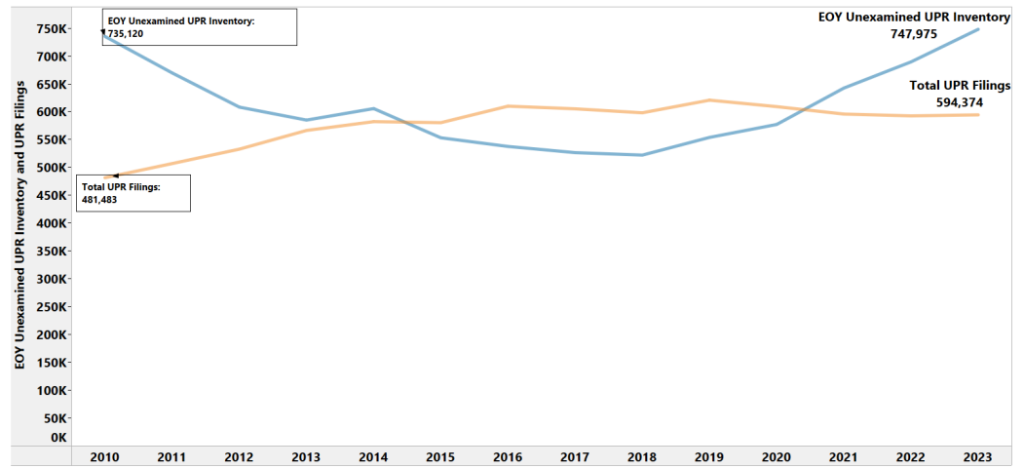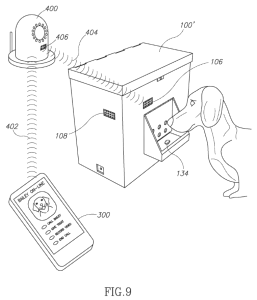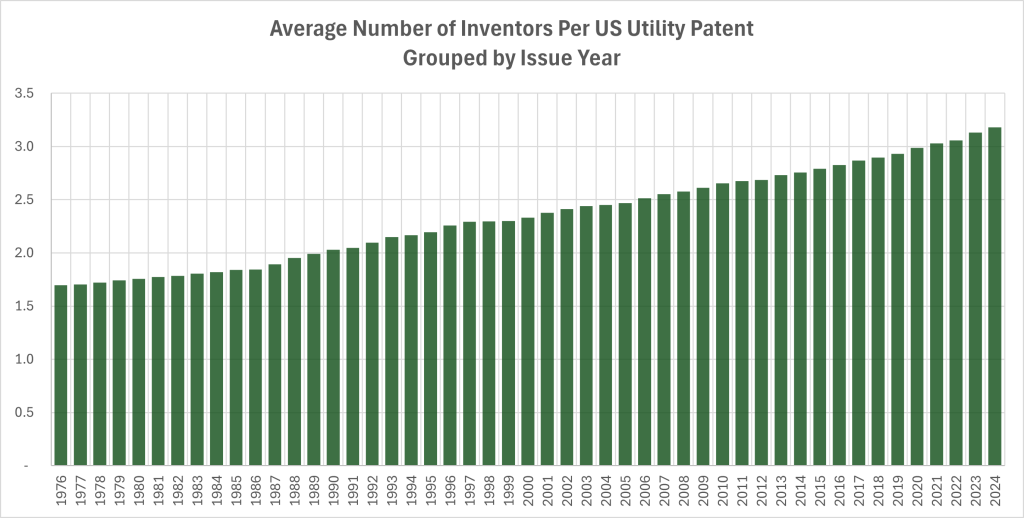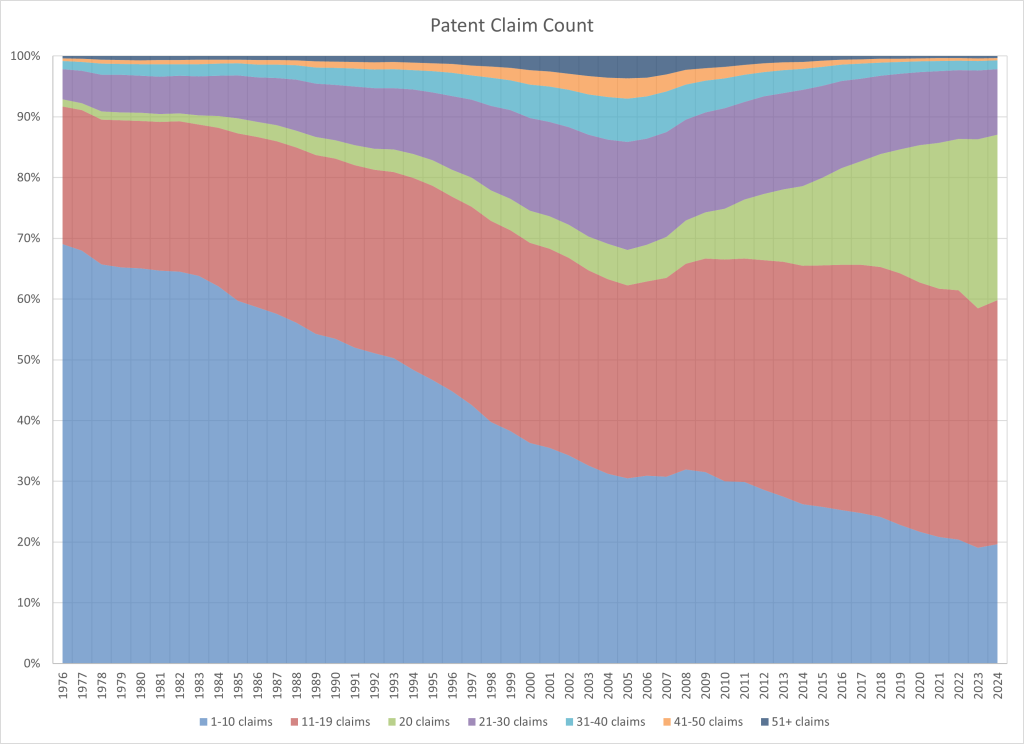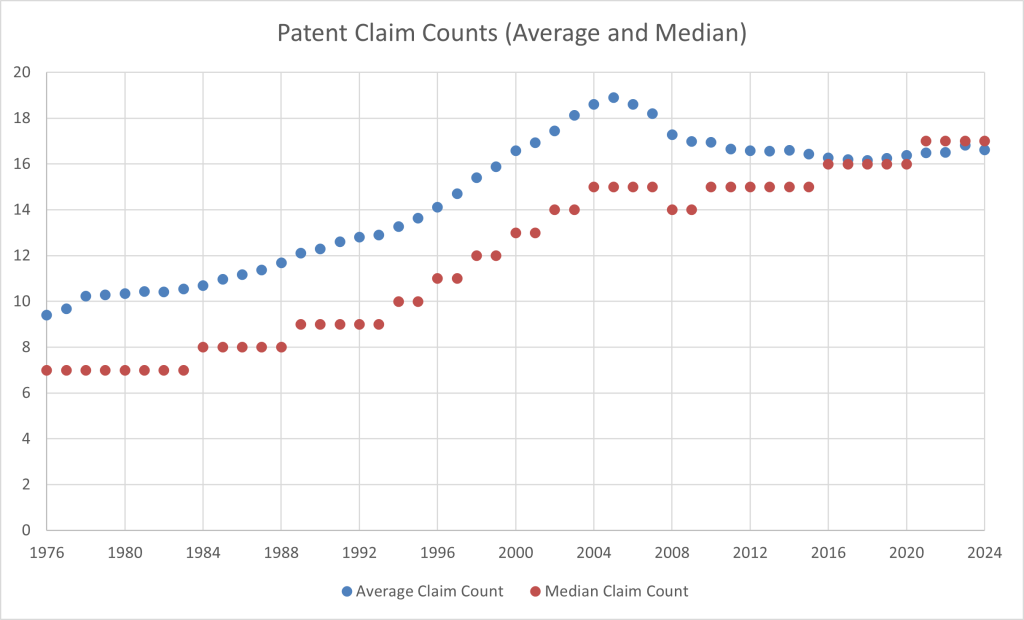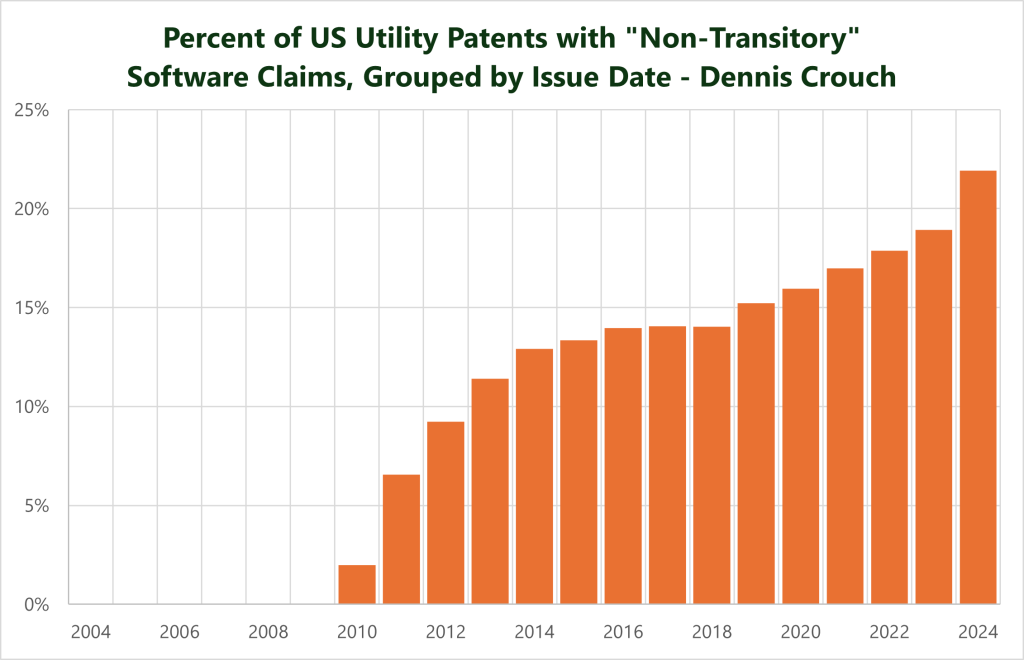by Dennis Crouch 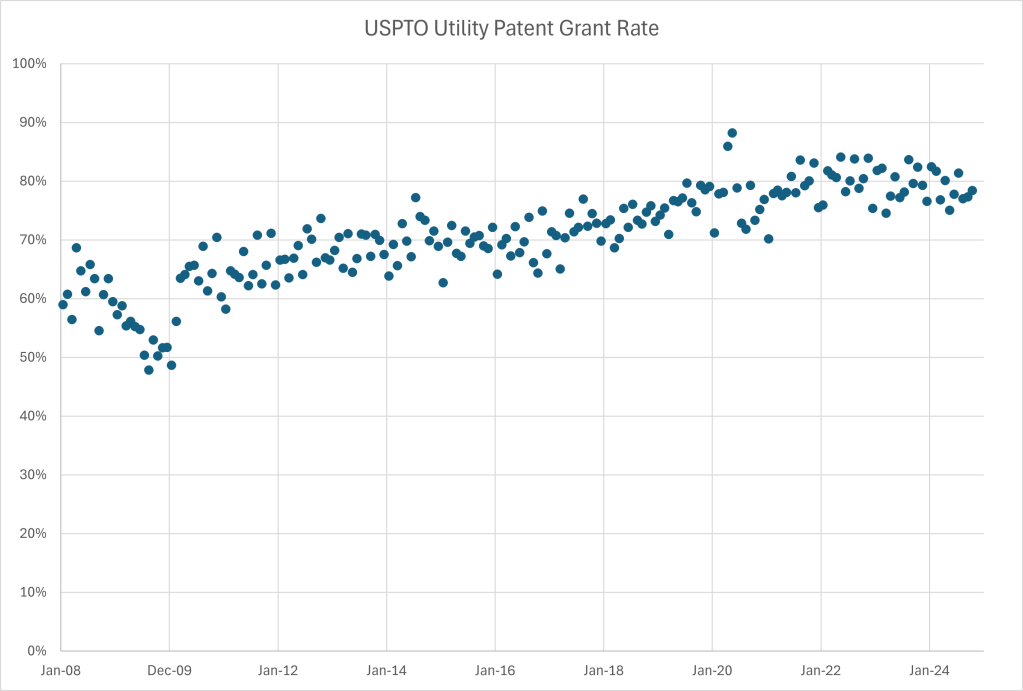
More recent data points to subtle but noteworthy changes in USPTO practice. Since Director Kathi Vidal’s confirmation in April 2022, the grant rate has shown a modest decline from its peak levels of around 80-85% during 2020-2021. While the current grant rate remains substantially higher than the pre-Kappos era, this recent downward trend suggests a potential recalibration of examination practices under Vidal’s leadership.
The grant rate shown in the graph represents a monthly calculation derived by dividing the number of issued patents by the total number of resolved patent applications for each month, but with an important limitation: the analysis includes only published patent applications. This restriction is necessary because the USPTO does not publicly release abandonment dates for unpublished applications. Thus, for each month, the rate reflects the number of patents granted divided by the total number of published applications that were either granted or abandoned. While this methodology provides valuable insights into USPTO practices, it notably excludes applications that were maintained as secrets through non-publication requests under 35 U.S.C. § 122(b)(2)(B) and the small number that issued too quickly to be published.
As the allowance rate has slipped, the backlog of unexamined applications has risen sharply in recent years — reaching 804,658 applications in October 2024 which is a concerning increase from approximately 526,000 applications in early 2018. Pendency and backlog issues reached a crisis point in 2008, but we are now above that high point. To be clear, these numbers report what the USPTO calls the “unexamined patent application inventory” which includes applications awaiting a First Office Action by the patent examiner (limited to utility, plant, and reissue (UPR) applications). The backlog of all pending applications also recently reached an all time high at over 1.2 million. (more…)
